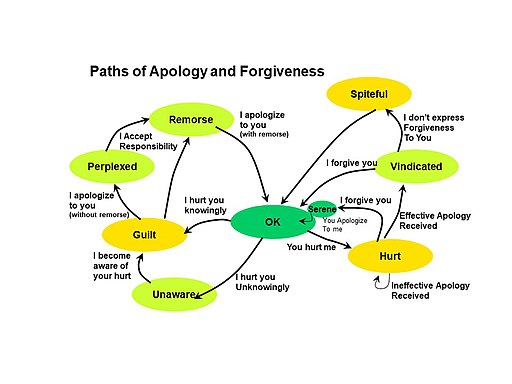Thank your critics! Yes, really (and sincerely)
Here’s a true incident from my teenage college years. I made a mild request to a group of people and one of my dorm-mates lit into me about how I was always so selfish and didn’t care about other people. It hurt like hell to hear this–but I reflected on it and decided that he had a point. So I changed my behavior. Decades later, I saw him at a reunion and thanked him. He had no memory of the incident, but to me it was a key turning point.
Criticism usually has a grain of truth (or sometimes a bushel)–so start by expressing thanks, even if it’s delivered nastily. Especially, then, because listening and appreciating is the only way you’re going to get into a positive outcome with someone who’s hostile. Listen, let them get their feelings out, acknowledge their feelings, meaningfully apologize for your action if that’s appropriate. And even if you don’t feel a need to apologize for the behavior or policy, apologize for upsetting them or making them feel unvalued. Don’t try to explain or justify your action yet. Just listen.And whatever you do, don’t say, “I’m sorry, but…”–that’s not an apology. Keep an ear out for the opportunity to take a specific step that will help, and offer, out loud, to take that step. That might just be informing them ahead the next time, or it might be completely undoing an action. You have to decide how much of the criticism is justified and figure out what the real issue is (which may not be the expressed issue).
Once the other person is done venting and you’ve apologized or de-escalated, you might (but might not) want to ask, “would you like to know why I did it that way? Maybe we could think together about how I could do it differently next time so both of our needs get met.” With this, you make them a partner in your growth, and you increase the likelihood of finding a viable solution for both of you, building a relationship of cooperation, not hostility. But you’re really asking. if they decline, drop it. They don’t want to be your partner in potentially changing their behavior, or maybe they are just tired of doing the work of educating others on an issue that is a sore spot for them.
Abundance thinking applies not just to stuff or lifestyle, but to relationships. This is a strategy to create abundance by welcoming even the nay-sayers. Not only do you get to build a relationship, you discover flaws in your thinking, planning, and action that you might not have seen and can now work around. Who knows–maybe your critics will even become your friends or your business partners.


